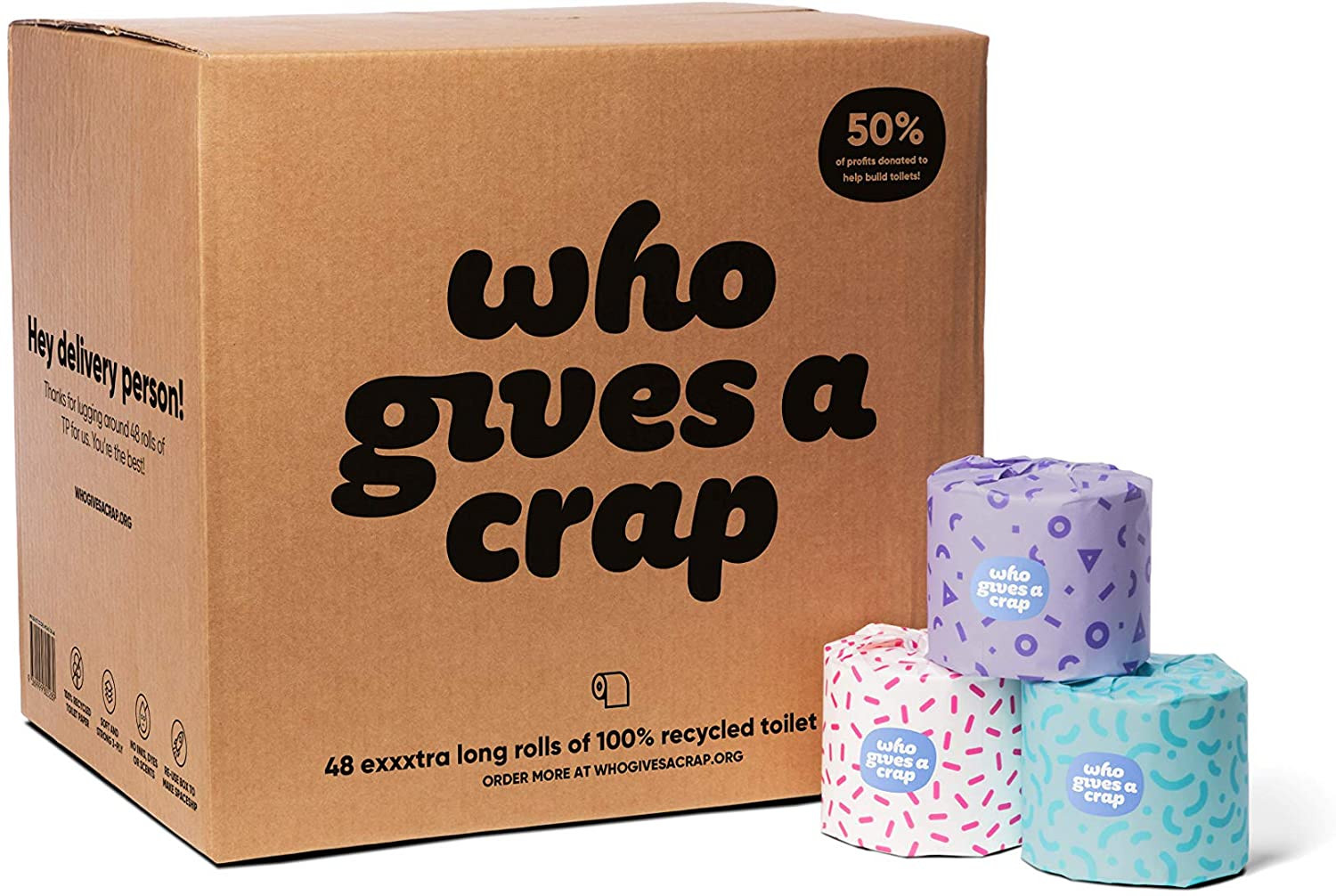Sustainable Alternatives to Unsustainable Products (And Brands That Sell Them)
- E-Commerce
- Sustainability
- 7 Mins

Unsustainable Products & Sustainable Alternatives to Shop
In recent years, the topics of climate change and human impact on our planet have gotten bigger. Rising generations are raised seeing the ecological impact of our unsustainable consumerism as it manifests in dwindling resources, rising oceans, and natural disasters.
While global warming isn’t too heartwarming, the news isn’t all bad. Brands are working harder than ever to create eco-friendly products. While some are new inventions of their own, many compose a different subset of products: ones we already have, made sustainably. By creating “new versions” of the things we already use every day, these companies are opening the world up to a better future where resources are used intelligently — and who can’t get behind that?
Today, we’ll take a look at some unsustainable products that make up your daily routine...plus sustainable alternatives to replace them with.
Toilet Paper (& Other Paper Products)
Most of your experiences with toilet paper only involves a little at a time (unless you’ve had the unfortunate mishap of dropping a whole roll in the toilet before). However, those few squares here and there quickly add up. Toilet paper is typically made from one of two sources: tree pulp or recycled tree/paper pulp. The latter comes from recycled paper, but is ultimately still tree-based and tree-derived. Each roll leads back to deforestation predominantly in the southeastern United States, Canada, and South America.
Investing in a bidet (like from BioBidet or TUSHY) is the most green option, which nearly any non-American country is happy to point out. For those still married to the paper route though, there are brands that make toilet paper from sustainable options. One of the most notable is the tongue-in-cheek company Who Gives a Crap. The company makes bamboo toilet paper as well as recycled toilet paper that allows the earth to heal while you do your business. Bamboo is one of the fastest growing plants, making it a renewable resource that regenerates so quickly its use is considered eco-friendly. (Best of all: the brand also builds toilets for those in need with every roll purchased.) Other honorable mentions include Reel, Bim Bam Boo, and Betterway.
Menstrual Products
Menstruation is totally natural, but the products we use to manage it? Not so much. Many believe that tampons and pads are all made from fabrics that decompose over time, but it turns out your average tampon can take between 500 and 1,000 years to break down. Even organic tampons may take up to 5 years to break down — and that’s with all-natural cotton. While the products themselves can be somewhat hard on the planet to degrade, aspects of production and usage go beyond that to simply unmanageable. The plastics (namely polyethylene) that go into making pads, pad wrappers, and tampon applicators require an absurd amount of energy-intensive processing and produce high levels of fossil fuel emissions.
Companies have worked hard to make tampon and pad options that are healthier both for users and the earth, but to be quite honest, Mother Nature’s best bet is a long-lasting, reusable alternative. You’re likely familiar with Nixit, Diva Cup, The Honey Pot, and Cora, which are all options in the zero-waste menstrual cup space. Even newer are reusable cloth pads and underwear, such as GladRags’ washable cloth pads or period-underwear brands like Thinx, Aisle, Saalt, and so many others.
Coffee Pods and Tea Bags & Boxes
We know, we know: there’s no talking you out of your morning coffee nor afternoon tea. (Quite a bit of caffeine even went into this article.) But, your morning ritual could likely use some revamping! For many of us, the customisability and convenience of Keurigs and Nespressos can’t be beat, but those single-serve coffee pods are doing a number on nature. Granted, some brands have dedicated recycling schemes, but it’s always best to reduce before you reuse or recycle.
Brands like Tayst, Glorybrew, Boyd’s, and Oakland Coffee Works, among others, are helping revolutionise coffee consumerism by making compostable coffee pods. And tea drinkers, you’re not totally off the hook either! While tea certainly doesn’t come with the waste coffee does, we’d still advise shopping for loose-leaf tea (with the help of a reusable produce bag if needed) and making tea using a reusable tea infuser. There are plenty of brands like Arbor Teas that deliver a variety of organic and fair-trade styles in compostable packaging right to your doorstep too, so you can always feel good about your tea time.
Natural Deodorant
Health and beauty products are well known for their detrimental effects on the environment, and deodorant is one of them. Contrary to your likely first thought, no; it’s not because of the plastic container (though that certainly plays a role!). Deodorant is made with aluminium (or aluminum for our American friends). Beyond the potential health hazards of rubbing particulate metals into our armpits each day, aluminium requires a lot of mining and refining. The process requires high amounts of energy while polluting air, soil, and water resources.
Natural deodorant like that by brand Native is made only with natural ingredients. Many of them aren’t antiperspirants, but control odor only through organic means. This often includes essential oils, charcoal, or clay. To really put the earth first, you can even opt for a natural deodorant that comes in an eco-friendly container. Larger companies like Dove and Secret have put out refillable odorants. Others, like Cleo + Coco, offer truly zero-waste alternatives with deodorant that comes in a recyclable wax and cotton bag instead of a plastic, one-use container.
Biodegradable & Compostable Trash Bags
When we think of all the things that end up in the trash, we often overlook the biggest culprit: the bags we throw the trash away with to begin with. Trash bags have been heavily engineered over the years to come with all the perks our mothers’ loved: extreme stretch, high durability, odor repellent, and stronger drawstrings. Unfortunately, all of those perks came with additional manufacturing, chemicals, and plastics.
Green trash bags may not make the trash they hold any more eco-friendly, but at least they don’t contribute additionally to the waste we’re discarding. There are both biodegradable and compostable options and while both supersede the hefty-hefty-hefty versions in your cabinet, experts agree that compostable is best due to their zero toxicity. If you’re looking for a new brand to give loyalty to, you can start your search with companies like BioBag, EcoSafe, or Grove Co. Oh, and if you’ve got a pup, don’t forget green alternatives to doggy bags from Boba & Vespa, Doggy Do Good, MOKAI, and others too!
Trendy Clothing
Selling on Shopify means we’re no stranger to the perils of fast fashion and how it impacts our environment. More than 84% of all clothing ends up in landfills or incinerators, with 300,000 tonnes of clothing going to landfill in the UK each year. Moreover, 5% of the UK’s carbon and water footprint can be attributed to clothing consumption alone. Starting to rethink that trendy cardigan in your closet? We get it.
There’s no need to stop shopping forever, though. Many brands are taking the fast fashion discourse as a chance to produce eco-friendly clothing made ethically. We could write a whole additional blog on awesome brands making things fair trade and with ethics in mind, and there are just too many to list on our own. It’s worth looking into smaller or even location-specific brands near you, as there is definitely a store for every style. Even some bigger brands are looking at ways to repurpose their current products into clothing, an honorable mention of which is JanSport’s current upcycling project with crop tops, vests, and shoes made out of their classic rucksack models.
Just make sure that wherever you purchase next, your old clothing is washed and donated to local charities and thrift organisations. Any clothing that doesn’t seem like it’s fit for a new home can always be upcycled into patchwork pieces, reusable grocery bags, blankets for shelter pets, and so much more. Shop (And Sell) Right With Shopify As you can see, there is certainly a theme in the products that need sustainable alternatives. Products that we need to go about our daily lives — namely bathroom, kitchen, and clothing goods — are those that require us to start thinking differently. Of course, we have nothing but admiration for the companies changing people and our planet for the better.
At Radiant, we help brands just like these become their best by growing their Shopify presence. We know that the world around us is changing, and our focus on luxury and ethical brands that source responsibly is our way of spurring change. Get in touch today to see how we can help bring your Shopify site and store to the next level using our digital services and growth packages. It’s the easiest way to make your impact even bigger.




















